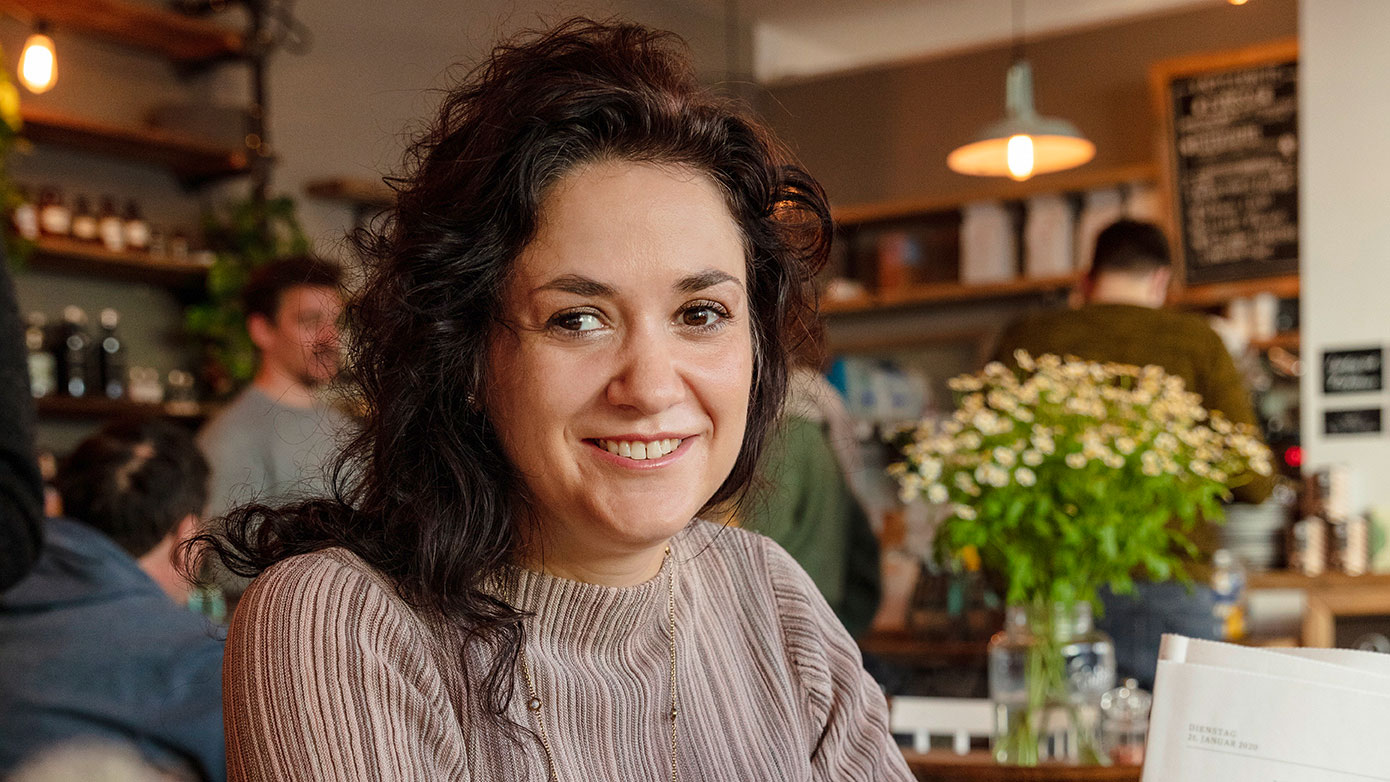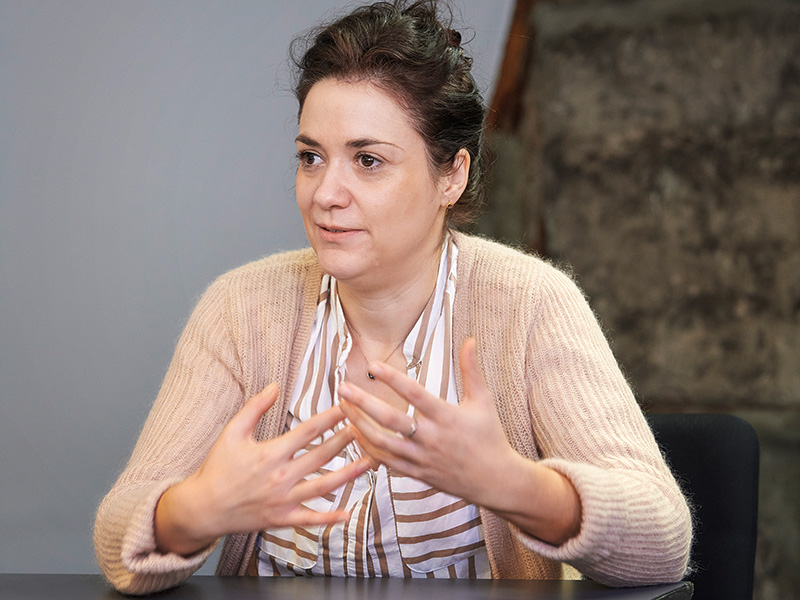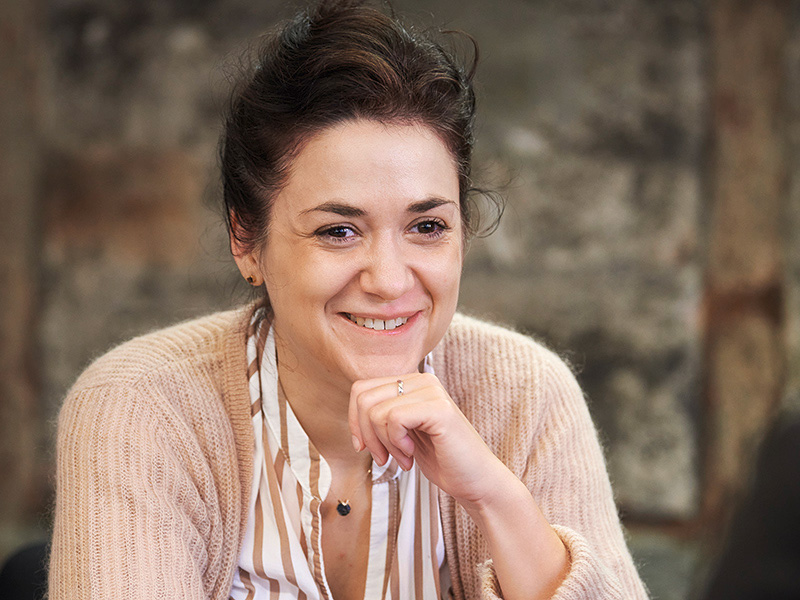
©GfG/Universität Bremen
And then? I stuck to it
Your degree is over, bring on your first job – or not? In the new Yearbook of the University of Bremen, graduates tell us about their lives after graduation.
In 2002, Sarah Ryglewski came to Bremen to study politics. After the end of her degree in 2009, she initially worked as a district manager. Ryglewski has been politically active since her youth – firstly as the regional chairwoman of Jusos (Young Socialists in the SPD), then as the regional vice chairwoman of the SPD, as part of the Bremen parliament, and since 2015, as a member of the German Bundestag (parliament). She is now the parliamentary state secretary of the Federal Ministry of Finance and currently the youngest state secretary in office.
You were born in Cologne. What were your reasons for coming to Bremen?
My degree was the reason I came to Bremen. I admit that I would have liked to have studied Latin American Regional Studies in Cologne but did not receive a place to study there. I also found politics interesting. Yet, for me, the orientation leaned too much towards the humanities in Cologne. In contrast, I found what was being offered in Bremen – the social science part with lectures in the fields of economics and law – attractive. I looked around the city and thought that if I do not like it then I can always leave. But I stayed and Bremen became my home.
Were your expectations of your degree met?
Definitely. Studying was a great deal of fun and I was able to find my specialization. The University of Bremen really suited me: Everyone knew everyone. The professors knew us too. That was a great situation to be in, especially during the advanced part of my degree. My expectations were also entirely met in terms of the content.

©GfG/Universität Bremen
You studied in Bremen from 2002 until 2009. How political was your degree? And how politically active were you during your studies?
The topics that we discussed during my studies were current. We always dealt with questions such as what does inequality mean? How can it be measured? It was scientifically based but was always relevant for the time. I really liked that. I would not have studied at any university where discussions were only held in an academic ivory tower. I was never active within university politics. I find it good and important that students help to shape their university surroundings and had great respect for my fellow students who were committed members of the student council and AStA student union. However, my focus lay mainly on politics outside of the university. Before I came to Bremen, I was an SPD member and was especially active in Jusos.
What topics were discussed by the Bremen Jusos at that time?
Many of the issues that we discussed back then are still relevant today. For example, the question of equal opportunities. What must an education system, which enables everyone to determine their own lives autonomously, be like? I was the first one in my family to study. That was and, unfortunately, still is more the exception than the norm, even at such a young university like Bremen, which also had a left-wing reputation. That was one of the topics which greatly preoccupied Jusos. Of course, there were topics where a great deal has now changed. Such as minimum wage. It was a lot of work until the majority of society was in favor of it. Even the trade unions viewed it critically. Minimum wage is now an established concept and the gloomy predictions have not come true.
Is there a particular point in time in your studies that you remember as being groundbreaking or inspiring?
To be honest, that point was near to the beginning. I thought that I was mainly interested in foreign policy. But it was too technical and too superficial for me. I had far more enjoyment when working on policy analysis and I concentrated on labor, social, and economic policy for the most part. I realized that I even find numbers and statistics interesting in that context. I was never the best math pupil and noticed during my degree that you can find a way into it when you have the right approach and people who can communicate it well.

©GfG/Universität Bremen
What was the transfer from university into your career like? And when did it become clear that you would become a politician – and also wanted to become one?
I actually imagined that I would go into the field of policy consultation after my degree, would maybe work for a union, maybe for a big association. I also toyed with the idea of journalism. My minor subject was geography and I worked for the “Wohnen in Nachbarschaften (WiN)” (Living in Neighborhoods) district project as a district manager. I really liked it due to the fact that it was multifaceted – I communicated with political boards but worked a great deal on social environment design at the same time. So there was also a social-work component. I was always politically active as a volunteer on the side: as the regional chairwoman of Jusos and as regional vice chairwoman of the SPD. Before the state elections in 2011, the SPD asked me if it would be an option for me to become a state parliament candidate. I thought about this step long and hard. I was at the beginning of my career and it was clear that my working hours would clash with the times of the parliament meetings and that I would definitely have to change my job. The decisive factor for me was that I have always been of the opinion that the views of young people belong in parliament and I wanted to use the opportunity to contribute these views. I was a member of the state parliament for four years. That was my entry into being a professional politician. When Carsten Sieling became Bremen’s mayor in 2015, I moved up into the Bundestag. During the German elections in 2017, I secured the direct mandate for constituency 54 – Bremen I.
How has the period that you studied shaped you?
I moved away from home when I was 19 and I grew up during my degree. Thanks to my studies, I was able to find out what I am really interested in and what I am good at. I was very ill during a period of my studies. That was when I learnt to focus and to decide what is important to me, what I want to pursue even if it is difficult, and what I do not want. That shaped me.
“I was always interested in people: How do societies organize life together and why?”
What part of your job as a politician enthuses you?
I was always interested in people: How do societies organize life together and why? Is it possible to regulate some things in a better way? That is why I studied politics. I found it thrilling to change my perspective – from the analytical side to the part when I can do something myself. It is great that you are able to do something and change things for people if you have perseverance and stay on the ball. As was the case with the minimum wage. That is what I started as a young woman and it was successful. It is a great feeling when one sees that it is improving people’s lives in a specific way. My motto is still the same: As a directly elected member of parliament, I want to achieve something for the people in Bremen in order to improve their lives.
You said that some issues remain. To be direct, in which areas do you think there needs to be change?
It is not the case that there always needs to be radical change. Willy Brandt once said that each age requires its own answers. I believe that the great challenge is to always check if the things that worked in the past are still functioning today. Or do we need something different? The circumstance that the divide between the rich and the poor is becoming even greater in Germany is something that I view as being a big problem that could have explosive consequences for the bond within society. There is no one solution for this but an important topic is equal opportunities.
You spend a great deal of time in Berlin. How often are you in Bremen?
I work in Berlin but live in Bremen. Like all other members of the Bundestag, my anchor point remains within my constituency. I actually spend more time in Bremen than I do in Berlin.
How is the view of the Weser different to the view of the Spree?
In comparison to the Weser, the Spree is more of a stream.
Sarah Ryglewski graduated 2009 with an diploma in Political science with a minor in Geography at the University of Bremen.